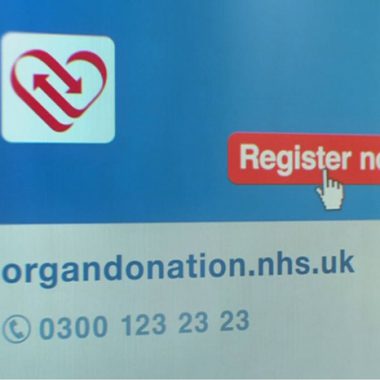Thousands of potential donors may have been missed off organ register

Exclusive Large numbers of patient requests to be put on the blood and organ donor register may have gone missing over eight years due to an admin error, GP leaders have discovered.
Pulse has learnt that Thames Valley Primary Care Support Agency has stopped processing blood and organ donor registrations when patients joined a new GP practice since 2007.
But although they said they had informed local GPs about the change, local LMC leaders say they knew nothing about it and that ‘big numbers’ could have been missed off the blood and organ donor register as a result.
The revelation comes as NHS England stopped processing blood and organ donor registrations nationally from April this year, expecting GPs instead to record them for their patients.
But the GPC has told LMCs to resist the change, saying that it is ‘not a contractual requirement’ for practices and that it should remain a responsibility for the NHS centrally.
The wrangling over the change to the way this information is recorded comes after the NHS warned of a 40% drop in blood donations.
GP leaders say they suspect that the Thames Valley recording error is not an isolated case, but NHS England declined to comment further.
The GMS1 – the form most patients fill in when they register with a GP practice – contains questions on whether patients wish to be added to the organ or blood donor register. Usual practice has been that the GP practice sends on the form to Primary Care Support Services (PCSS) for patients’ preferences on organ and blood donation to be recorded.
But practices in Thames Valley have been forwarding this form to their local team since 2007, unaware until last month that patients’ wishes were going unfulfilled.
An NHS England spokesperson told Pulse: ‘Thames Valley PCSS gave notice to GP practices in 2007 that they were no longer registering patients on the donor database. Practices could then offer the service themselves, or guide patients on self-registration. Any requests from GP practices since this time are returned to the practice for their action, with guidance on how it can be managed’.
However GP leaders told Pulse that practices had not received any such letter, and that practices had been sending in the GMS1 form for years without having anything returned.
Dr Paul Roblin, chief executive of Berkshire, Buckinghamshire, and Oxfordshire LMCs in the Thames Valley told Pulse: ‘No one in my patch knew that had happened. I’ve been to a practice where they were assiduously sending off the paper forms, expecting that the information – the patient’s requests – would be recorded and that hasn’t happened.’
Dr James Kennedy, medical director at the LMCs added that across the three local LMCs ‘not one single doctor’ could remember any communication regarding blood or organ donation.
He added: ‘University practices have thousands coming in a year. In an ordinary practice turnovers of new patients of 10% are pretty widespread and about 15-20% in some inner city areas. So it’s big numbers.’
He added: ‘My suspicion is that everybody has been sitting there thinking this is happening, but it may not just be Thames Valley that this has happened in.’
GPC deputy chair Dr Richard Vautrey told Pulse: ‘Practices and patients place their trust in systems put in place by NHS England, and PCTs before them, to process their information properly. It’s unacceptable for information provided in good faith, and which could potentially be life-saving, to be simply ignored and disregarded in this way.’
Dr Robert Morley, chair of the GPC contracts and regulations subcommittee, told Pulse: ‘It suggests here’s been a breach of trust on behalf of the primary care support services that haven’t done the work that they had indicated they were doing.’
The GPC has already issued an alert to practices after PCSS wrote to all GP practice managers in April this year explaining that registering patients on the blood and organ donor registers was no longer part of its ‘core’ responsibilities and should be taken up by practices.
But the GPC have shot this down, saying ‘this change has not been negotiated nationally and it is not a contractual requirement for practices’ adding the responsibility would be a ‘further burden to stretched practices’.
It advises: ‘As practices are not under any contractual obligation to take on this extra work, we would encourage LMCs and practices to challenge any attempt by PCSS to transfer this responsibility, requesting they make reference to the relevant regulation in stating this work should be undertaken by practices. It is GPC’s view that this important function should continue to be undertaken by PCSS.’ [just checking this].
The confusion over blood and organ donations comes as primary care support services are being put out to a £1bn tender by NHS England, a process that has already seen interest from providers including international arms firm Lockheed Martin.
Take Pulse’s June survey
Want to win a Samsung Smart HD TV? Then take Pulse’s multi-topic survey covering a range of areas affecting general practice.
It should take just a couple of minutes to complete, and will help Pulse gain a vital insight into the views of the profession.












